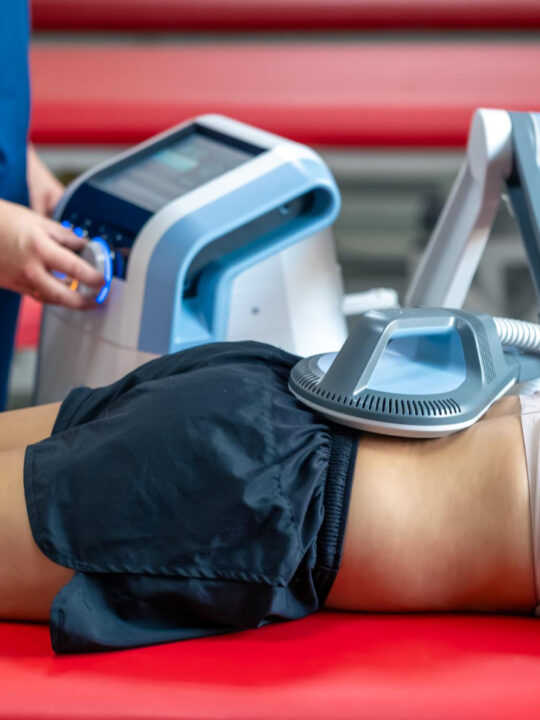 If you feel called to a career as a nurse, you might feel like you are done with school after getting your associate’s degree in nursing or BSN. But, there is so much more available within the nursing profession and many opportunities for taking your career further than the undergraduate level. At some point in their career, many registered nurses decided that they want to go further and pursue advanced education.
If you feel called to a career as a nurse, you might feel like you are done with school after getting your associate’s degree in nursing or BSN. But, there is so much more available within the nursing profession and many opportunities for taking your career further than the undergraduate level. At some point in their career, many registered nurses decided that they want to go further and pursue advanced education.
Table of Contents
- 1 Why Get a Nursing Ph.D.?
- 2 Become an Acknowledged Expert in the Field:
- 3 Relieve the Shortage of Nurse Educators:
- 4 Influence Healthcare Practice and Policy:
- 5 Work in an Administrative Role:
- 6 Start Your Own Practice:
- 7 The Main Roles to Consider With a Ph.D. in Nursing:
- 8 Nurse Practitioner:
- 9 Nurse Leadership and Management:
- 10 Nurse Researcher:
- 11 Nurse Consultant:
- 12 Nurse Educator:
- 13 Everything You Should Know About Getting a Ph.D. in Nursing:
- 14 Admissions Requirements:
- 15 Other Nursing Doctoral Degree Options:
- 16 Doctor of Nursing Practice:
- 17 Doctor of Nursing Science:
Why Get a Nursing Ph.D.?
If you would prefer to move away from clinical practice and start a new nursing career in research, education, or administrative roles, a nursing Ph.D. from Wilkes University might be the ideal choice for you. This advanced degree program is a research-focused doctoral degree and one of the highest qualifications that nurses can earn. It will primarily prepare nurses for a range of advanced career options.
Some nurses may decide to get an advanced degree early in their careers, with some pushing through school before they even join the workforce. But for many, having real-life nursing experience behind them can make getting a Ph.D. or other advanced nursing degree easier, so most nurses will choose to go back to school to earn advanced credentials later in their career. Studying online is becoming a more popular choice since this allows nurses to get their qualifications on their own schedule.
Getting a Ph.D. in nursing can help you become a respected authority in your field along with allowing you to make a real difference to nursing and healthcare both now and in the future.
-
Become an Acknowledged Expert in the Field:
Nursing is a career that takes a different approach to medicine compared to physicians and other practitioners with a doctorate. After getting a doctorate degree in nursing, you will be in a better position to hold your own among other medical professionals educated to the same level and will be just as valued on any care team as any other medical practitioner with this level of education and qualifications.
-
Relieve the Shortage of Nurse Educators:
Most nurses are probably already aware that there is a shortage of qualified nurses in the field, but what you may not realize is that a shortage of nurse educators who can teach student nurses is one of the main reasons why. Nursing schools around the country are struggling to recruit qualified nurse educators, according to InsideHigherEd.com. As a result, thousands of qualified nursing school applicants are being turned away each year due to a lack of suitable faculty to teach them. With a nursing Ph.D., you could help hundreds of students get into the nursing profession and relieve the shortage of both nurse educators and registered nurses.
-
Influence Healthcare Practice and Policy:
If you have already got some experience in nursing either from working as a nurse or going through nursing school, you may have wondered who makes up all the procedures, rules, and guidelines that you are taught to follow. Most of the time, this is something that is done by nurse researchers who are educated to the Ph.D. level. Nurse researchers are important healthcare professionals who are responsible for obtaining the scientific data needed to improve care practice in healthcare settings around the country. For example, nurse researchers discovered that a 10% increase in BSN-educated nurses in the workplace leads to a 5% reduction in patient mortality, something that has ultimately led to a change in national hiring policies for registered nurses. Nurse researchers are responsible for advancing the field and are often consulted by lawmakers about potential policy changes.
-
Work in an Administrative Role:
While the nursing Ph.D. is a degree program that focuses on research, it can still be an ideal degree to pursue if you want to prepare for an administrative nursing role. Nurses who want to work in a supervisory position such as a nurse director might find that this could be the right degree program choice for them. It will help you develop the leadership and management skills that you need as a nurse administrator and create several opportunities for you since the healthcare industry is increasingly recognizing the value of a nurse’s perspective at all organizational levels.
-
Start Your Own Practice:
In over twenty US states, nurse practitioners are permitted to open their own independent practice. While the Ph.D. in nursing is a degree program that mainly focuses on research, it can still be a useful program for preparing nurses to work in advanced practice. Right now, getting an MSN is adequate for advanced nursing practice, but many nurse practitioners who want to start their own clinic or practice will consider getting an even more advanced degree program for the management and administrative skills that they will learn as a part of the degree.
The Main Roles to Consider With a Ph.D. in Nursing:
To get a Ph.D. in nursing, you may be required to have already gained an advanced nursing degree such as an MSN to take your education and career to the next level. With a Ph.D. in nursing, you do not need to resign yourself to research roles only since it’s likely that you will already possess a range of qualifications that you can use to get into a range of different nursing careers in both clinical and non-clinical settings. Some of the top roles to consider with this degree include:
-
Nurse Practitioner:
As mentioned earlier, a nurse practitioner does not need to have a Ph.D. and an MSN is usually sufficient to get into this advanced practice role. However, you may find that getting a Ph.D. will provide you with better further preparation for running your own practice if you live in a state where nurse practitioners have full practice authority and plan to make this your next career step. Nurse practitioner roles are currently some of the most popular options among registered nurses who want to progress with their careers, as the role is experiencing a massive amount of demand because nurse practitioners are being hired in place of primary care physicians, with fewer medical students deciding on primary care.
-
Nurse Leadership and Management:
A Ph.D. in nursing will thoroughly prepare you for a career in nurse management or leadership. Today, professionals who have the skills and knowledge needed to successfully lead teams and ensure that patient care is managed well are crucial to the healthcare industry as a whole. Due to their holistic and patient-centered approach to healthcare, nurses are becoming an increasingly popular choice for these leadership and management positions.
-
Nurse Researcher:
If you want a role where you can have a direct impact on healthcare policy and discover things that can change patient care for the better in the future, a role as a nurse researcher might be the ideal choice for you. Nurse researchers use their skills and knowledge as nurses to gather information, conduct research and evaluate the data that they have gathered to come up with results that can be used to make suggestions regarding healthcare practice and policy to ultimately make improvements.
-
Nurse Consultant:
If you are interested in a role where you can provide advice and improve the healthcare industry while working on a self-employed basis, a role as a nurse consultant might be perfect for you. With a Ph.D. in nursing, you are in an ideal position to start in a role as a nurse consultant where you will typically be hired by healthcare organizations to help with addressing a range of issues that they might be facing. Nurse consultants will analyze and research the companies that they work with to ultimately find the strengths and weaknesses of the company and propose strategies and solutions to bring about improvements for the future.
-
Nurse Educator:
While you can become a nurse educator with an MSN, professionals who are educated to the doctorate level are in higher demand than ever as nurse educators since they are qualified to teach student nurses at more advanced levels, contributing to the advancement of the nursing profession as a whole. Nurse educators are currently professionals that are experiencing a lot of demand across the country as there is simply not enough qualified educators to teach the number of nurses that are needed to reduce the shortage, making this one of the most important career paths to consider for nurses with a doctorate degree.
Everything You Should Know About Getting a Ph.D. in Nursing:
If you are considering a nursing Ph.D., it’s helpful to consider how long it might take, admissions requirements, and the curriculum used. You may also find it useful to consider the other doctoral degree options for nurses such as the doctor of nursing practice degree program. The nursing Ph.D. program will require students to prepare a dissertation that consists of original research to advance nursing practice and the delivery of healthcare. The program will generally take around three years to complete, but the completion time may vary depending on the student. Some schools will offer nursing Ph.D. programs that can be taken online; these usually last for around the same amount of time that you’d expect to spend getting a Ph.D. in nursing on-campus.
Since the program is research-based, it often requires a significant time commitment from the student. Nursing Ph.D. students can expect to spend their time engaging in full-time study including classes and lectures throughout the summer. Students will also need to choose a specific research area to focus on along with completing the required coursework.
Admissions Requirements:
To enroll in a nursing Ph.D. program, you will usually be required to hold at least a BSN. Some programs will also require that prospective students have earned an MSN, and others prefer to take on students that have previous nursing experience. Students may also be required to meet a minimum GPA and other prerequisite course requirements before they will be able to enroll. To apply, you may need a resume, goal statement, letters of recommendation, GRE scores, and undergraduate or graduate transcripts.
Other Nursing Doctoral Degree Options:
Along with the Ph.D. in nursing that mainly focuses on research, there are alternative doctorate programs to consider depending on where you want your career to take you. These include:
-
Doctor of Nursing Practice:
The DNP program builds on the traditional nursing master’s degree program to prepare students for quality control, leadership, and evidence-based practice. The DNP program is designed to be a terminal degree for nurses and has a higher focus on clinical practice rather than research, making it a better choice for nurses who want to continue working directly with patients in a range of advanced roles, or nurses who are considering a nurse educator position. To complete this program, it will usually take around two years of full-time study and programs are available online for nurses who want a more flexible option.
-
Doctor of Nursing Science:
A Doctor of Nursing Science program will take on average around five years to complete. This specialist program is designed to provide nurses with the skills that they need to conduct investigative research in their field along with developing clinical and leadership skills. Many Doctor of Nursing Science programs will focus heavily on data analysis, health outcome measurements, healthcare policy, and ethics.
Trained nurses who want to take their careers to the next level and get into either research or advanced nursing role may consider a doctorate degree in nursing, including a Ph.D. in nursing, DNP, or Doctor of Nursing Science. All of these programs can lead to a wide range of advanced clinical or non-clinical nursing roles. Nurses can also study for any doctorate degree online, offering them a more flexible way to fit their studies around working full-time as a nurse and to take their career to the next level without needing to take time out from it.
Whether you want to work in advanced nursing practice, nurse education, nurse research, or another advanced nursing role, a Ph.D. or other doctoral degree in nursing can be the ideal qualification to help you meet your career goals.







